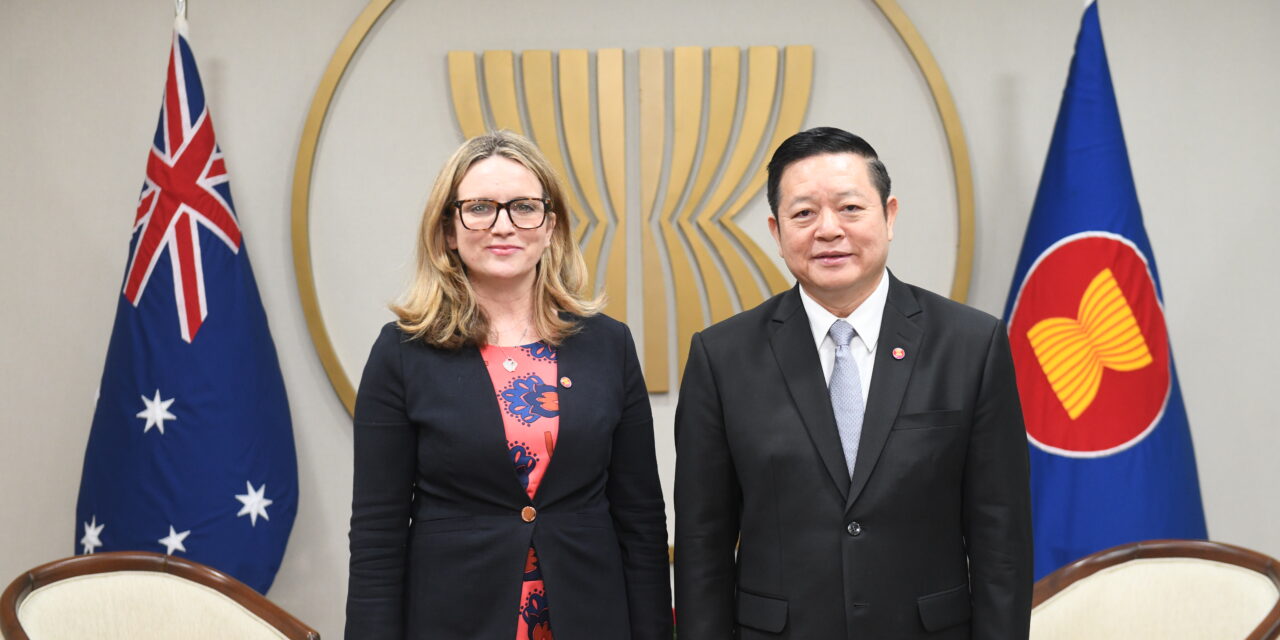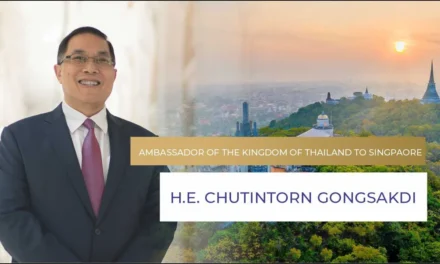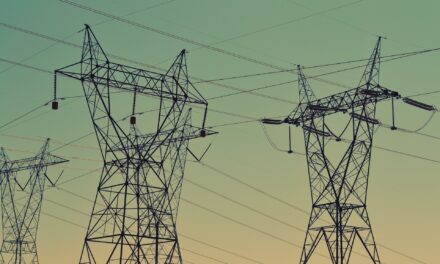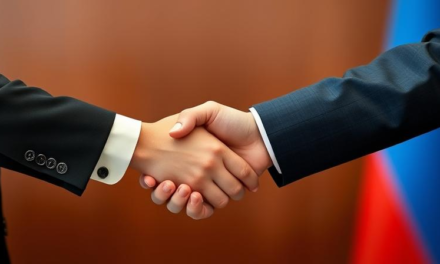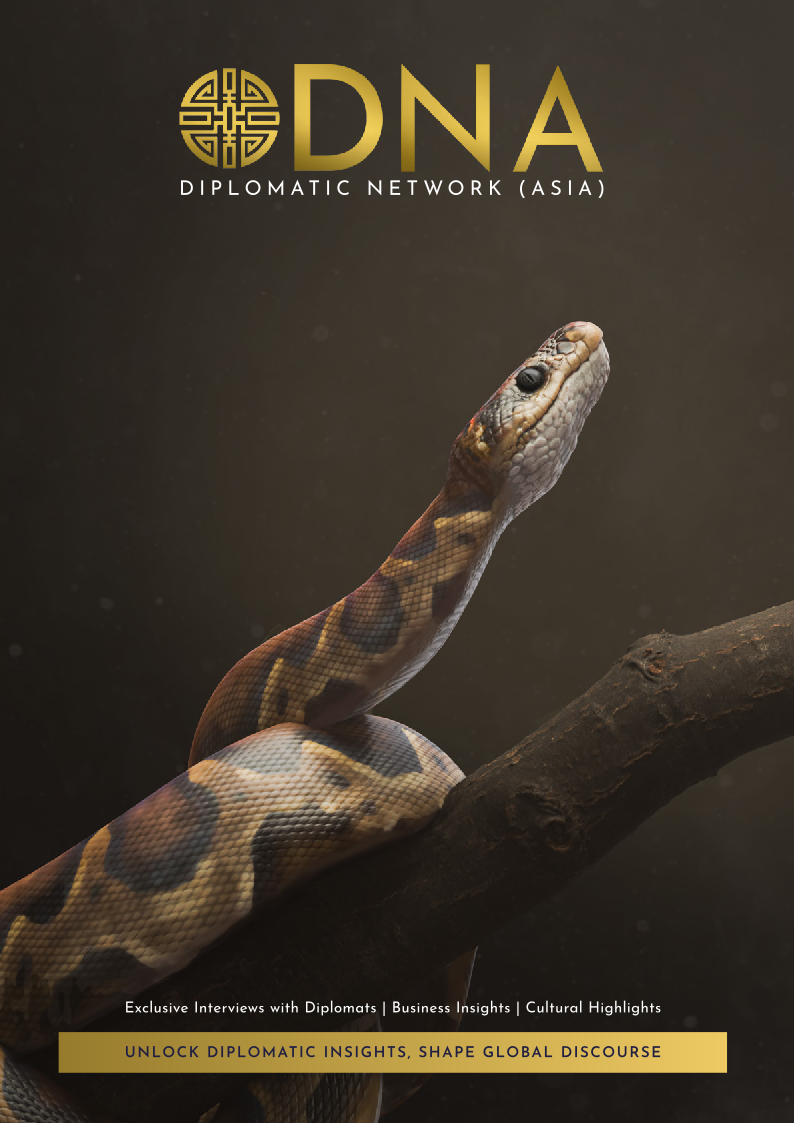As the Southeast Asian region grows in importance across the international stage, ASEAN relations with Australia are deepening.
Diplomatic Network (Asia) spoke to the newly appointed Australian ambassador to ASEAN, Tiffany McDonald, about her country’s relations with ASEAN as well as how connection and understanding are at the core of diplomacy.
McDonald was appointed to the position in January this year. She quickly assumed the role with the highlight of her tenure thus far being the ASEAN-Australia Special Summit held between March 4 and 6. The special summit commemorated the 50th anniversary of ASEAN-Australia dialogue relations.
At the end of the summit, Australian Prime Minister Anthony Albanese addressed Southeast Asian leaders, saying that the region was vital to Australia’s future.
“More than any other part of the world, Southeast Asia is where Australia’s destiny lies,” Albanese said.
“This is why we will continue to support your ASEAN outlook on the Indo-Pacific and ensure the stability and peace of our region.”
McDonald has previously served overseas as high commissioner to Brunei Darussalam, and at diplomatic posts in France, Holy See, South Korea, the United Kingdom and Indonesia.
Congratulations on your new role as Australia’s ambassador to ASEAN. What does this position mean to you and what are you looking forward to most in your new position?
Thank you! It is a privilege to have taken up this role at such a consequential time for ASEAN and Australia as we commemorate 50 years since Australia became ASEAN’s first Dialogue Partner this year. ASEAN sits at the center of Australia’s engagement in the region, and so it’s exciting that my team and I at the Australian Mission to ASEAN get to be at the forefront of this engagement.
“It’s exciting to return to Jakarta – home of ASEAN headquarters – 20 years after I first lived and worked in Indonesia.”
ASEAN and Australia have so much to be proud of, and the past 50 years of our cooperation have given us a strong foundation to ensure ours is a partnership for the future. Of course, the ASEAN-Australia Special Summit commemorating 50 years of dialogue partnership that was held in Melbourne last month was a fantastic start to my term. Now I’m looking forward to focusing on the implementation of the outcomes of the summit, which included over AUD500 million, around USD320.3 million, of new and expanded initiatives announced at the special summit, and putting into practice the ASEAN-Australia Joint Leaders’ Vision Statement and Melbourne Declaration. This all builds on the activities that form part of ASEAN and Australia’s Comprehensive Strategic Partnership, including the flagship AUD204 million Aus4ASEAN Futures Initiative.
On a personal level, being back in Southeast Asia is also fantastic. It’s exciting to return to Jakarta – home of ASEAN headquarters – 20 years after I first lived and worked in Indonesia. I’ve also had the privilege of already visiting Laos, which is Australia’s country coordinator for ASEAN and ASEAN chair this year, and I look forward to visiting the other ASEAN member states – including Brunei, where I was high commissioner during its ASEAN chair year in 2021 – in the coming months.
What are the key objectives and priorities of Australia’s engagement with ASEAN under your ambassadorship?
With the ASEAN-Australia Special Summit now over, my key objective is the implementation of the initiatives announced in Melbourne, as well as those already underway as part of Australia’s Comprehensive Strategic Partnership with ASEAN. These initiatives span a range of issues, touching on each ASEAN community pillar – economic, socio-cultural and political security – and responding to ASEAN priorities. I’m looking forward to further embedding these initiatives and priorities into our work plans, as ASEAN and Australia develop a new ‘plan of action’ for our Comprehensive Strategic Partnership for 2025 to 2029.
“…continuing to grow ASEAN and Australia’s economic relationship is a top priority.”
We are also very focused on supporting the implementation of ‘Invested: Australia’s Southeast Asia Economic Strategy to 2040’, which was launched by Australia’s Prime Minister Anthony Albanese at the ASEANIndoPacific Forum in 2023 in Jakarta. The focus of this strategy is to improve two-way trade and investment with ASEAN, with many of the initiatives announced in Melbourne drawing from recommendations made in the strategy. So, continuing to grow ASEAN and Australia’s economic relationship – including through the implementation of the Regional Comprehensive Economic Partnership and the upgraded ASEAN-Australia New Zealand Free Trade Area – is a top priority.
Of course, Australia also highly values ASEAN’s unmatched convening power in our region. Throughout my ambassadorship, Australia will continue to support ASEAN through our constructive engagement in the ASEAN-led architecture – such as the region’s premier leader-led forum for strategic dialogue, the East Asia Summit. In addition, the ASEAN-led architecture continues to serve as an important avenue for Australia’s Foreign Minister Penny Wong to engage her counterparts through Australia’s annual meeting with ASEAN Foreign Ministers, at the EAS Foreign Ministers’ Meeting, and at the ASEAN Regional Forum.
“…this also illustrates the extent to which ASEAN centrality and ASEAN-led architecture contributes to Australia’s peace and prosperity.”
It’s an important function that ASEAN plays in bringing Indo-Pacific leaders and ministers together. ASEAN-led architecture has, and will continue to have, a pivotal role in contributing to peace and security in the region, including through conflict prevention. So, as you can see, it is a big agenda, but I think this also illustrates the extent to which ASEAN centrality and ASEAN-led architecture contributes to Australia’s peace and prosperity.
How was the ASEAN-Australia Special Summit from a personal and professional perspective?
The Special Summit was an important opportunity to reflect on 50 years of cooperation and set the direction of the ASEAN-Australia partnership. It was such a rewarding experience both personally and professionally. With Australia’s Prime Minister Albanese hosting ASEAN Leaders, the Secretary-General of ASEAN and the Prime Minister of Timor-Leste for the special summit’s plenary and retreat discussions. In addition, there were vibrant discussions held across government, business, academics, think tanks and future leaders across the thematic tracks events held on business, climate and clean energy, maritime cooperation and for emerging leaders. These discussions were an opportunity to look back on the 50 years of partnership, but also to identify opportunities for ASEAN-Australia cooperation for the next 50 years and beyond.
“…we announced the establishment of a new ASEAN-Australia Centre to strengthen business, education, cultural and community connections between Australia and Southeast Asia.”
It was personally and professionally fulfilling to work with so many colleagues in Australia and from ASEAN member states, pulling together in the lead up to and during the special summit. In particular, I have to point out the enormous contribution that Australia’s ASEAN country coordinator, Lao PDR made in co-chairing the special summit.
We have so many special summit achievements to celebrate. We agreed our Joint Leaders’ Vision Statement, which set out a shared vision for the region’s future, and the Melbourne Declaration, which outlines our shared commitment to securing peace, stability, prosperity and a sustainable future for the region; we announced the establishment of a new ASEAN-Australia Centre to strengthen business, education, cultural and community connections between Australia and Southeast Asia; we brought together the next generation of ASEAN leaders to canvass new ideas; and we hosted the first Track 1.5 Maritime Dialogue between ASEAN and Australia – just to name a few!
“…those who traveled to Australia saw that we share common ground with so much of the world.”
It’s also, on a personal level, wonderful to have hosted our ASEAN friends and colleagues in Melbourne, where they had the chance to experience modern Australia firsthand. From being home to one of the oldest continuing cultures with Australia’s First Nations peoples to the more than 1 million Australians who claim Southeast Asian ancestry – those who traveled to Australia saw that we share common ground with so much of the world. We have longstanding connections with the region and are tied together by more than geography – across family, business, education, tourism and more.
What are the chances of Australia joining ASEAN? How would this change both ASEAN as an organization as well as Australia’s role in the region?
ASEAN membership is a matter for ASEAN. We can continue to strengthen our partnership with ASEAN in a mutually beneficial way without becoming an ASEAN member. Australia was honored to become ASEAN’s first Dialogue Partner back in 1974 and one of ASEAN’s first Comprehensive Strategic Partners in 2021 – a clear demonstration of the strength of our economic, political, cultural and people-to-people ties. We are continuing to build on our extensive program of engagement, including with the new initiatives announced at the ASEAN-Australia Special Summit. Our active participation in the ASEAN-led regional architecture, including the East Asia Summit, ASEAN Regional Forum and ASEAN Defence Ministers’ Meeting Plus, also provides a strong platform for enhanced cooperation with ASEAN on regional priorities.
Instead of being an ambassador to a nation, you are an ambassador to an organization. How do you think this role differs from that of the usual ambassadorial role and what unique challenges does it present?
It’s actually not too unusual for there to be ambassadors to organizations, as well as to countries. Indeed, Australia has ambassadors to organizations such as the United Nations and OECD, as well as thematic ambassadors on priority issues such as our ambassador for climate change; ambassador for gender equality; and our ambassador for arms control & counter-proliferation.
“Some of the challenges it presents are also some of the unique privileges of the role…”
But having been ambassador at a bilateral mission, as Australian high commissioner to Brunei, I agree there are some differences. Some of the challenges it presents are also some of the unique privileges of the role, such as being able to work across a range of issues with a number of different countries. For example, the East Asia Summit – convened by ASEAN – is the only leader-led forum at which all key Indo-Pacific partners meet to discuss political, security and economic challenges facing the region. These can at times be long and challenging discussions, but that process of coming together for dialogue and finding common ground is crucial for safeguarding peace, security and development in the region.
As ambassador to ASEAN, I get the opportunity to speak to a broader, regional audience. Plus, I get to work closely with colleagues and counterparts across a broad number of countries, both ASEAN member states and dialogue partners. Working out how to make the most of those opportunities isn’t always straightforward, but it’s very much worthwhile.
Personally, I enjoy the fact that my role allows me to interact with people all over Southeast Asia – whether during my travels to the region, or on social media.
Of course, working with organizations also means you get to work with the people behind that organization. The ASEAN Secretariat is central to the work of ASEAN, and I’d like to thank them for all their support to ASEAN and Dialogue Partners.
If you could share one memorable moment or experience from your diplomatic career that has profoundly shaped your perspective or approach to diplomacy, what would it be? How has this experience influenced your role as Australia’s ambassador to ASEAN?
This is going to sound predictable, but genuinely one of the most memorable experiences has been seeing the ASEAN-Australia Special Summit in action. From greeting the ASEAN leaders on Australian soil, meeting the many ministers in attendance, seeing the hive of activity, and connections being formed – from government, academics and business champions, to the next generation of leaders. It was electric to see this all come together and a real privilege to be part of it.
Diplomacy is about making connections, building understanding and advancing shared interests. I can’t think of a better illustration of that than the ASEAN-Australia Special Summit. It’s a privilege to be serving as Australia’s ambassador to ASEAN and an honor to be part of this very special relationship.
*You can follow ASEAN-Australia relations on X via @AusAmbASEAN or on Instagram via @AusMissionASEAN.

